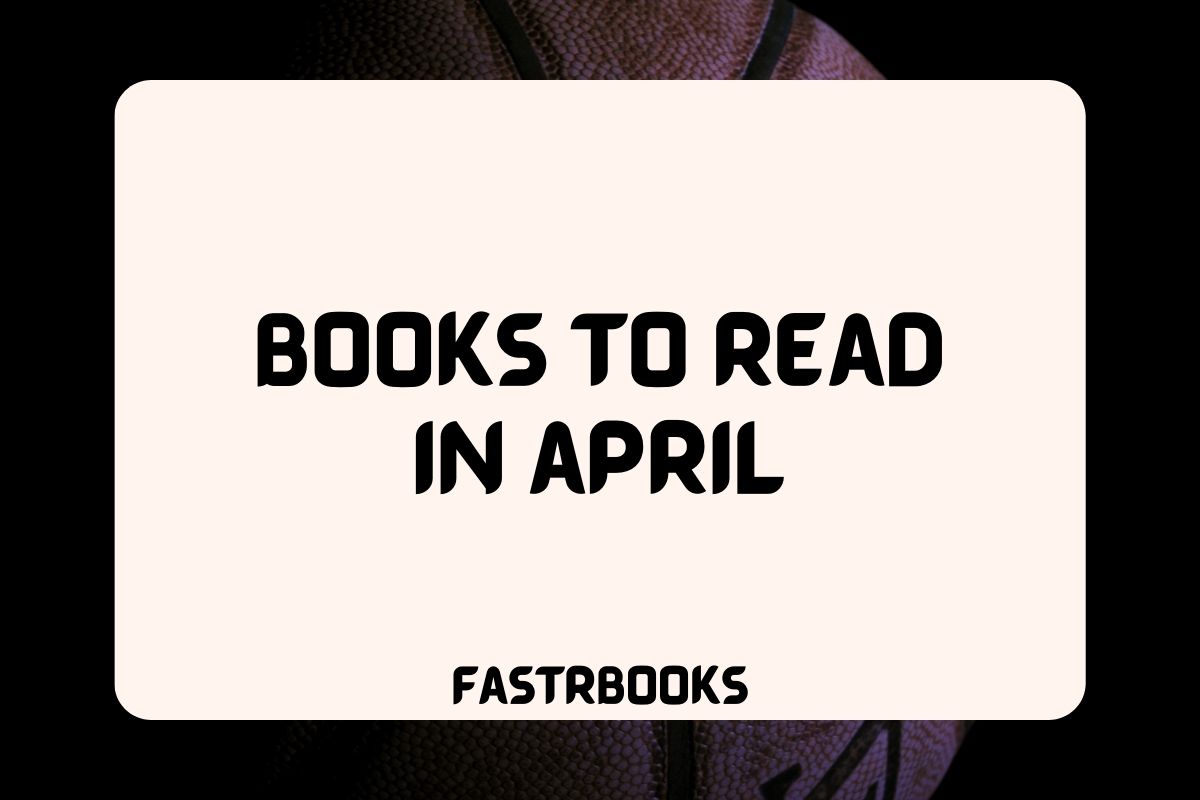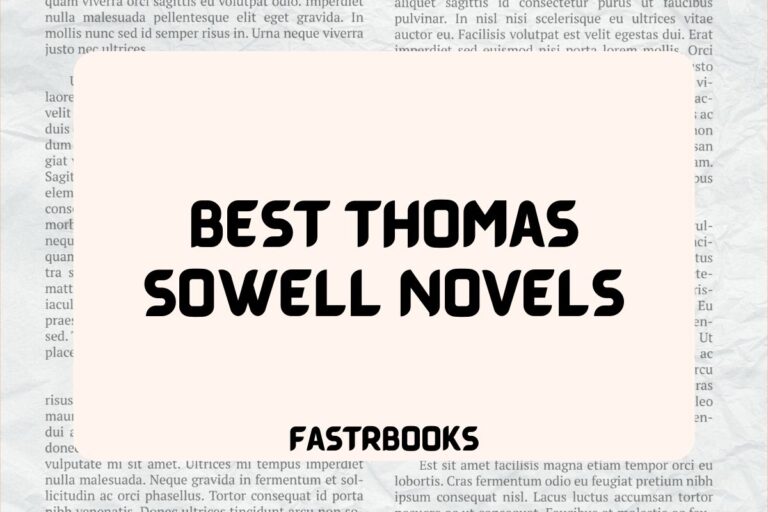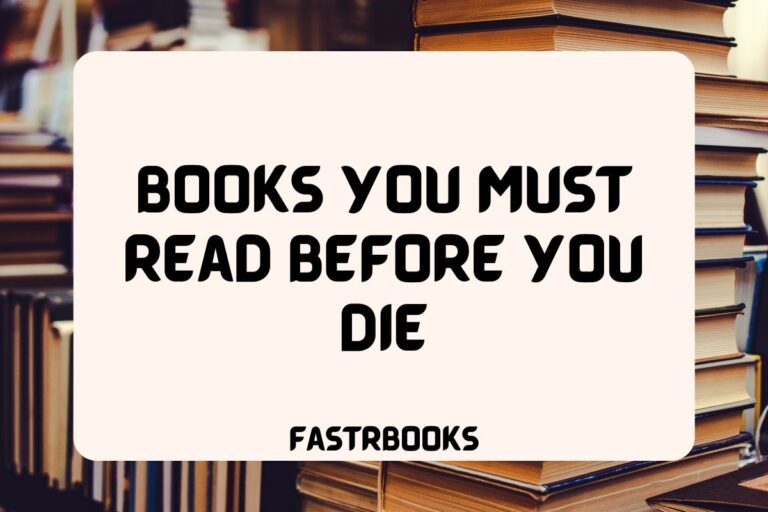My April Reading List | 10 Best Books To Read

April is the month of possibilities, isn’t it?
So, why not take advantage of it, and decide to read some amazing books that will definitely change you as a person.
I have decided to create a list of 10 amazing books that you should read this month.
Check them out.
My April Reading List
1. The Hobbit by J.R.R. Tolkien
Genre: Fantasy Adventure
“The Hobbit,” written by J.R.R. Tolkien, is a timeless classic that introduces readers to the enchanting world of Middle-earth. The story follows the journey of Bilbo Baggins, a hobbit who enjoys a comfortable and unambitious life in his hobbit-hole.
Bilbo’s world is turned upside down when he is unexpectedly recruited by the wizard Gandalf and a group of dwarves to embark on an adventure to reclaim the Lonely Mountain and its treasure from the dragon Smaug.
Through forests, over mountains, and into the darkness of caves, Bilbo encounters trolls, goblins, elves, and giant spiders. In the process, he discovers a magical ring and transforms from a cautious hobbit into a brave adventurer.
What makes it amazing?
“The Hobbit” is celebrated for its richly imagined world filled with unique creatures, languages, and landscapes that have captivated readers for generations.
Tolkien’s storytelling prowess brings Middle-earth to life with vivid descriptions and a sense of wonder. The book is not just an adventure but also a journey of self-discovery and personal growth for Bilbo.
Its themes of courage, friendship, and the significance of stepping out of one’s comfort zone resonate with readers of all ages.
The simplicity of Bilbo’s character, combined with the complexity of the world around him, makes this book a compelling read and a cornerstone of the fantasy genre.
2. Steve Jobs by Walter Isaacson
Genre: Biography
“Steve Jobs” by Walter Isaacson is an authoritative and engaging biography of the visionary co-founder of Apple Inc.
Isaacson presents a comprehensive account of Jobs’s life, from his adoption shortly after birth to his co-founding of Apple, his ousting and subsequent return, and finally, his battle with cancer.
Based on over forty interviews with Jobs conducted over two years—as well as interviews with more than a hundred family members, friends, adversaries, competitors, and colleagues—Isaacson has constructed a detailed narrative that captures the complexity of a man known for his perfectionism, intense drive, and creative genius.
The book delves into Jobs’s personal and professional relationships and his role in revolutionizing several industries, including personal computers, animated movies, music, phones, tablet computing, and digital publishing.
What makes it amazing?
“Steve Jobs” stands out because it provides an unvarnished look at the life of a man who reshaped technology and culture. Isaacson’s biography is not just a chronicle of Jobs’s life but also a reflection on innovation, leadership, and the price of success.
The depth of Isaacson’s research and his access to Jobs himself give readers an intimate look at Jobs’s visionary mind and complex personality.
This biography is not only inspiring but also a cautionary tale about the costs of obsession and the impact of one individual’s vision on the world. It’s a compelling read for anyone interested in technology, design, and the human stories behind the devices that have become integral to our lives.
3. A Short History of Nearly Everything by Bill Bryson
Genre: Historical, Science
In “A Short History of Nearly Everything,” Bill Bryson takes on the ambitious task of explaining the most complex scientific concepts in terms that are accessible to the layperson.
The book covers a vast array of topics, from the origins of the universe, the development of the Earth, to the advancements in understanding quantum mechanics and everything in between. Bryson interweaves historical anecdotes and biographical sketches of the scientists who have contributed to our current understanding of the world, making the narrative both informative and entertaining.
With wit and clarity, he demystifies science, making it approachable and relatable, and demonstrates how everything is interconnected.
What makes it amazing?
What sets “A Short History of Nearly Everything” apart is Bryson’s ability to make science not only understandable but also immensely enjoyable.
His storytelling brings to life the fascinating histories behind scientific discoveries and the eccentric personalities of the scientists involved. Bryson’s enthusiasm for the subject matter is contagious, inspiring a sense of wonder and curiosity in the reader.
This book is a testament to human ingenuity and our quest for knowledge, making the vast expanse of scientific inquiry feel intimate and relevant. It’s a must-read for anyone who has ever been curious about the world around them and the forces that have shaped it.
4. In Cold Blood by Truman Capote
Genre: Crime Fiction, Non-Fiction
“In Cold Blood” by Truman Capote is a pioneering work in the true crime genre, telling the real-life story of the murder of the Clutter family in the small town of Holcomb, Kansas, in 1959.
Capote reconstructs the murder and the investigation that led to the capture, trial, and execution of the killers, Richard Hickock and Perry Smith, with meticulous detail and novelistic flair. The book explores the complex psychological relationship between the two murderers as well as the impact of the crime on the community.
Through extensive research and interviews, Capote brings depth and nuance to the characters involved, blurring the lines between fiction and non-fiction and creating a chilling and captivating narrative.
What makes it amazing?
“In Cold Blood” is remarkable for its innovative narrative style, which combines the precision of journalism with the literary quality of a novel. Capote’s deep empathy for all his subjects, including the murderers, challenges readers to consider the nature of evil and the American justice system.
The book’s psychological depth, attention to detail, and suspenseful storytelling make it a groundbreaking work that has influenced both the true crime genre and literary journalism.
Capote’s ability to delve into the minds of the killers and the victims’ family members offers a profound exploration of the human condition, making “In Cold Blood” a haunting and unforgettable read.
5. Mindset: The New Psychology of Success by Carol S. Dweck
Genre: Self-Improvement, Psychology
“Mindset: The New Psychology of Success” by Carol S. Dweck delves into the power of our mindset in shaping our lives, particularly the distinction between a “fixed” mindset and a “growth” mindset. Dweck, a renowned psychologist, argues that the way we think about our talents and abilities significantly influences our success.
The book presents the idea that individuals with a fixed mindset believe their qualities are carved in stone, which can lead to a desire to prove themselves repeatedly.
In contrast, those with a growth mindset believe that their abilities can be developed through dedication and hard work, which fosters a love of learning and resilience essential for great accomplishment.
Through research and real-life examples, Dweck provides strategies for fostering a growth mindset in various aspects of life, including education, relationships, and work.
What makes it amazing?
“Mindset: The New Psychology of Success” is transformative, offering a simple yet groundbreaking idea that can change how we approach our goals and challenges.
Dweck’s concept of the growth mindset has the power to liberate readers from self-imposed limitations, encouraging a focus on effort, learning, and persistence rather than on seeking approval or avoiding failure.
The book’s insights are applicable to every aspect of life, making it a valuable tool for anyone looking to achieve personal growth, improve relationships, or enhance their career.
Its clarity, practical advice, and the profound impact of its central idea make “Mindset” an essential read for anyone interested in unlocking their potential.
6. Zero to One by Peter Thiel with Blake Masters
Genre: Entrepreneurship
“Zero to One: Notes on Startups, or How to Build the Future” by Peter Thiel, co-founder of PayPal and an early investor in Facebook, with Blake Masters, is a profound exploration of innovation and entrepreneurship. The book is based on notes from a course Thiel taught at Stanford University and presents a contrarian approach to building startups.
Thiel argues that true innovation involves going from zero to one—creating entirely new products that change the world, as opposed to going from one to n, which is simply making incremental improvements on existing products.
The book covers everything from the importance of monopolies in business, why startups should focus on secrets that others don’t see, and how to build a company that creates a new future.
What makes it amazing?
“Zero to One” is celebrated for its clear, thought-provoking insights into the mindset required to create something truly new and valuable.
Thiel’s emphasis on the importance of visionary thinking and his critique of the current education and business practices challenge readers to think differently about entrepreneurship.
The book is a call to action for innovators and entrepreneurs to aim for bold, ambitious projects that can move humanity forward.
Its straightforward advice, combined with Thiel’s own experiences in the tech industry, makes it an invaluable resource for anyone interested in the startup world or looking to understand the principles that drive successful innovation.
7. The Hidden Life of Trees by Peter Wohlleben
Genre: Science & Nature
In “The Hidden Life of Trees,” Peter Wohlleben, a German forester, shares his deep love and knowledge of the forest, revealing the fascinating relationships between trees and the complex social network they inhabit.
Wohlleben explains how trees are like human families: tree parents live together with their children, communicate with them, support them as they grow, share nutrients with those who are sick or struggling, and even warn each other of impending dangers.
The book draws on groundbreaking scientific discoveries as well as the author’s own experiences from his forestry work, to describe how trees feel pain, have memories, and manage to communicate and cooperate with one another.
What makes it amazing?
“The Hidden Life of Trees” transforms our understanding of trees, making us see them as living, breathing beings with communal lives much like our own.
Wohlleben’s passionate and engaging narrative, filled with astonishing facts, challenges our conventional perceptions and instills a greater appreciation for the complexity of the natural world.
This book is not only an eye-opener about the life of trees but also a broader reflection on the environment and humanity’s place within it.
It inspires a profound respect for the natural world and provides a compelling argument for the conservation of forests, making it a must-read for nature lovers and environmentalists alike.
8. The Stranger by Albert Camus
Genre: Philosophical Fiction
“The Stranger” by Albert Camus is a novel that delves into the absurdity of existence and the inevitable presence of death. It tells the story of Meursault, an indifferent French Algerian who commits a senseless murder and faces the consequences of his actions.
The narrative explores Meursault’s psychological detachment from society and his lack of traditional moral feelings, which isolates him from those around him and ultimately leads to his condemnation not for his crime, but for his lack of adherence to societal norms.
Camus employs a simple, straightforward writing style to examine complex themes of existentialism, alienation, and the human condition, making Meursault an embodiment of the philosophical concept of the absurd.
What makes it amazing?
“The Stranger” is remarkable for its ability to provoke deep thought about the nature of existence and the arbitrary nature of society’s moral judgments.
Camus’s exploration of existentialist themes through the character of Meursault challenges readers to question the meaning of life, the importance of societal norms, and the concept of justice. The novel’s enduring relevance and its capacity to stimulate philosophical inquiry make it a masterpiece of 20th-century literature.
Its concise narrative and profound themes have made it a critical and scholarly focus, as well as a cornerstone of existential thought, appealing to readers interested in philosophy, literature, and the exploration of the human psyche.
9. This Is Your Brain on Music by Daniel J. Levitin
Genre: Music
“This Is Your Brain on Music: The Science of a Human Obsession” by Daniel J. Levitin, a neuroscientist and musician, explores the connection between music and the human brain.
The book explains why music is a critical part of human existence, delving into the neurology of how we perceive, remember, and experience music.
Levitin unpacks the complexities of how the brain processes different aspects of music, such as rhythm, melody, and harmony, and how these elements trigger emotional responses.
He also explores the evolution of music, its role in human development, and why certain songs remain timeless. The book is a fascinating journey that bridges the gap between the science of music and its emotional impact on our lives.
What makes it amazing?
“This Is Your Brain on Music” is amazing because it provides a comprehensive yet accessible explanation of the science behind music’s universal appeal. Levitin’s unique perspective as both a scientist and a musician allows him to offer insightful analyses that resonate with music lovers and professionals alike.
The book enlightens readers on the intricate relationship between music and the brain, making complex neurological concepts understandable and engaging.
It not only deepens our appreciation of music but also enriches our understanding of the human brain and its extraordinary capacity to find meaning and emotion in sound, making it a captivating read for anyone curious about the intersection of music, science, and psychology.
10. Moneyball by Michael Lewis
Genre: Sports
“Moneyball: The Art of Winning an Unfair Game” by Michael Lewis is a game-changing book that tells the story of the Oakland Athletics baseball team and its general manager Billy Beane.
Faced with a limited budget, Beane and his team of analysts use statistical data and analytics to assemble a competitive team, challenging the traditional methods of player scouting and valuation.
The book details how their innovative approach, focused on undervalued skills and players, allowed the Athletics to achieve remarkable success despite financial constraints. “Moneyball” is not just a sports story; it’s a narrative about innovation, strategy, and overturning conventional wisdom.
What makes it amazing?
“Moneyball” is amazing because it transformed how people think about sports management and the potential of data analytics.
Lewis’s engaging narrative style brings to life the characters involved and the skepticism they faced, making the story accessible and compelling even for those with little interest in baseball.
The book’s impact extends beyond baseball, influencing various sports and industries to adopt data-driven approaches.
Its exploration of how to leverage overlooked assets and challenge established norms resonates with entrepreneurs, business leaders, and anyone interested in the dynamics of change and innovation. “Moneyball” is a testament to the power of thinking differently and the potential to achieve great results with limited resources.






